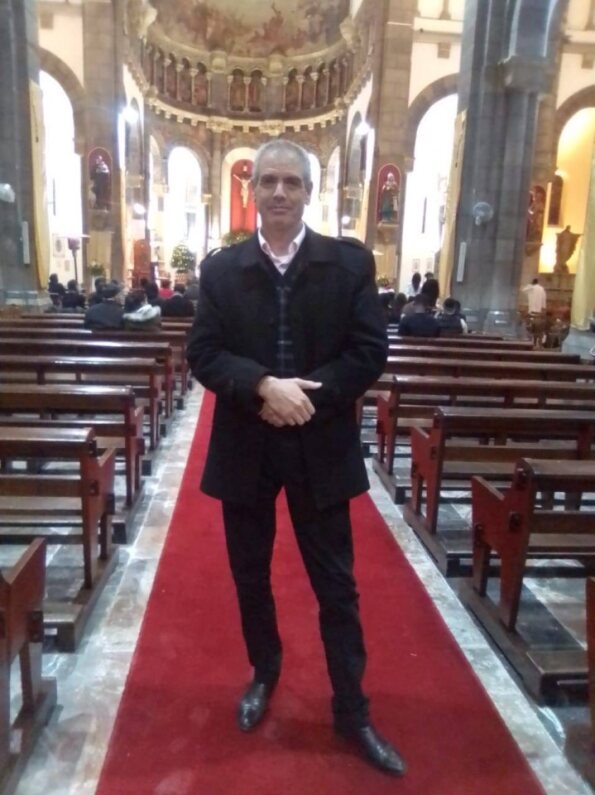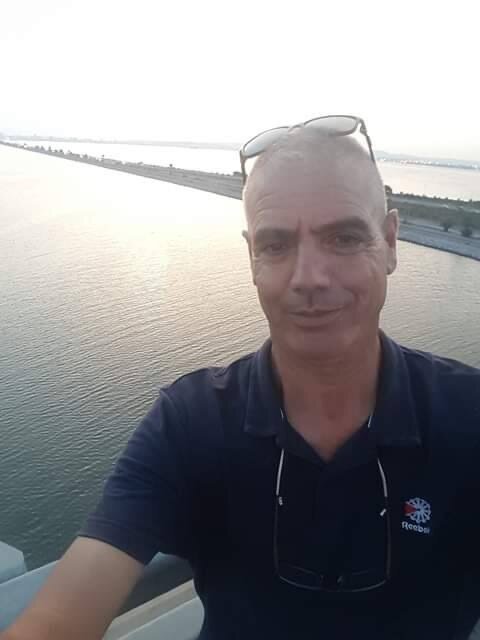On July 4, a court of appeal in Algiers confirmed the sentencing of Amazigh activist Slimane Bouhafs to three years in prison and a 100,000DA (around 988 CAD) fine. Slimane Bouhafs had been granted refugee status in Tunisia in 2020.
However, this did not protect him from being kidnapped from his home in Tunis and tried on charges of terrorism for his supposed affiliations to a Kabylie independence organization in September 2021 and since held in Kolea prison, near to Algiers. Not only are the charges against Slimane Bouhafs bogus, but his entire trial is illegal under international human rights law.
He must be released immediately and all charges against him dropped.
Here’s what you can do:
Write to the President of Algeria urging him to:
- Release Slimane Bouhafs immediately, drop all charges against him and allow him to leave Algeria.
- In the meantime, ensure that Slimane Bouhafs is not subjected to any ill-treatment in prison.
Write to:
President of the Republic of Algeria
Abdelmadjid Tebboune
Presidence de la republique
Place Mohammed Seddik Benyahiya, El Mouradia,
Alger 16000 Algerie
Email: President@el-mouradia.dz
Salutation: Your Excellency:
And copy:
Mr. Mokhtar ALLOUNE
Counsellor & Chargé d’affaires, a.i.
Embassy of the People’s Democratic Republic of Algeria
500 Wilbrod Street
Ottawa, ON K1N 6N2
Tel: (613) 789-8505; -0282 Fax: (613) 789-1406
Email: info@embassyalgeria.ca
Background
Slimane Bouhafs, 56, is an Amazigh activist and Christian convert. In 2016, he served two years in prison for Facebook posts, for which a court sentenced him for “offending the Prophet” and “denigrating the creed and precepts of Islam”. In 2018, he fled to Tunisia and was granted refugee status by UNHCR in 2020. Yet, in August 2021, he went missing, only to reappear four days later in a police station in Algiers. In September 2021, a judge opened a criminal investigation against Slimane on 10 charges, including “membership in a terrorist organization” and “undermining the integrity of the national territory”, for his alleged links to MAK and for Facebook posts.
On September 20, 2021, a group of UN independent human rights experts asked the Tunisian and Algerian governments to explain any steps they had taken to transfer Slimane Bouhafs from Tunisia to Algeria, and any legal grounds for the criminal investigation against him in Algiers.
Algeria’s permanent mission to Geneva responded to the UN experts in a letter from Algeria in October 2021, they claimed that Slimane Bouhafs had posted messages on Facebook attacking the Algerian state, its symbols, and its institutions, and praising the MAK, an organization which the Algerian authorities labelled as terrorist in 2021 and had communicated with members of the group. However, Algerian authorities have said nothing publicly on how, when, and under what circumstances Slimane Bouhafs entered Algeria.

Crackdown on dissent
Under international human rights law, Tunisia is obligated to protect Slimane Bouhafs from being kidnapped and forcibly returned from Tunisia. Tunisia is bound by the principle of non-refoulement, prohibiting forced returns, expulsions, or extraditions – both of refugees to countries where they could face threats to their lives or freedom, and of anyone to countries where they could face torture.
The Algerian authorities’ crackdown on critical voices shows no signs of abating. In the past two years, at least 280 journalists, bloggers, activists and human rights defenders have been harassed and unlawfully imprisoned on charges related to the exercise of their rights to freedom of expression and peaceful assembly.
Since April 2021, the Algerian authorities have increasingly resorted to the use of overly broad charges of “terrorism” or “conspiracy against the state” to prosecute human rights defenders and Hirak activists. On May 18, 2021, the High Council for National Security (HCNS), a consultative body in charge of advising the President of the Republic on security issues, announced that the political opposition organization Rachad and the group MAK were labelled as “terrorist entities.”
In June last year, the Penal Code was amended to expand the definition of terrorism to include “attempting to gain power or change the system of governance by unconstitutional means.” On August 18, 2021, the HCNS, presided over by President Tebboune, decided to arrest all the members of the two movements, whom the authorities accuse of implication in the Kabylie forest fires which killed tens of people, until the “radical eradication” of both movements.

























